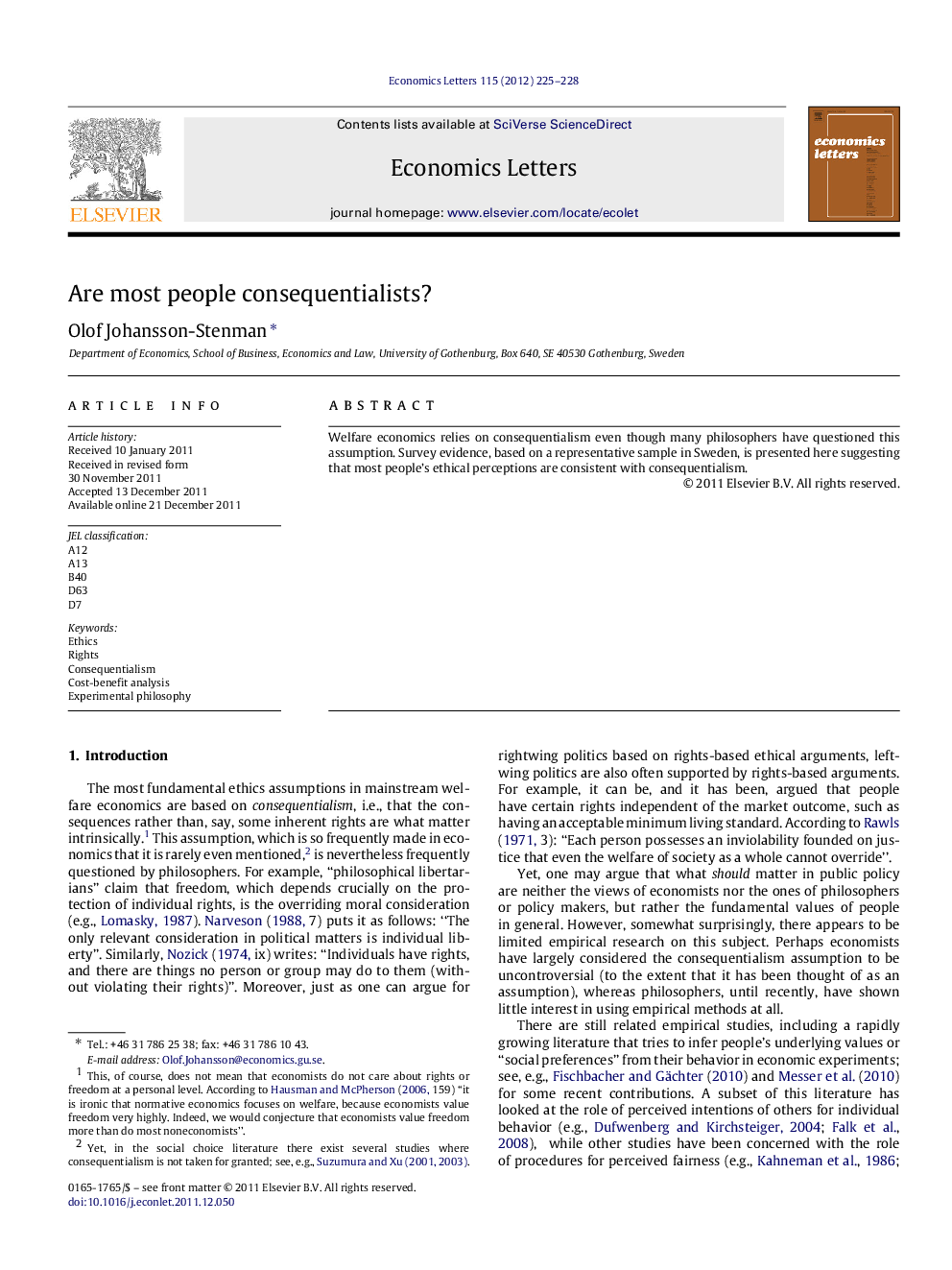| Article ID | Journal | Published Year | Pages | File Type |
|---|---|---|---|---|
| 5059872 | Economics Letters | 2012 | 4 Pages |
Abstract
Welfare economics relies on consequentialism even though many philosophers have questioned this assumption. Survey evidence, based on a representative sample in Sweden, is presented here suggesting that most people's ethical perceptions are consistent with consequentialism.
⺠Consequentialism is the most fundamental ethics assumptions in welfare economics. ⺠Thus, the consequences rather than e.g. inherent rights are what matter intrinsically. ⺠Many philosophers have questioned consequentialism. ⺠Yet, the results from a Swedish survey suggest that most people are consequentialists. ⺠This is particularly the case for young, university-educated respondents with high incomes.
Related Topics
Social Sciences and Humanities
Economics, Econometrics and Finance
Economics and Econometrics
Authors
Olof Johansson-Stenman,
